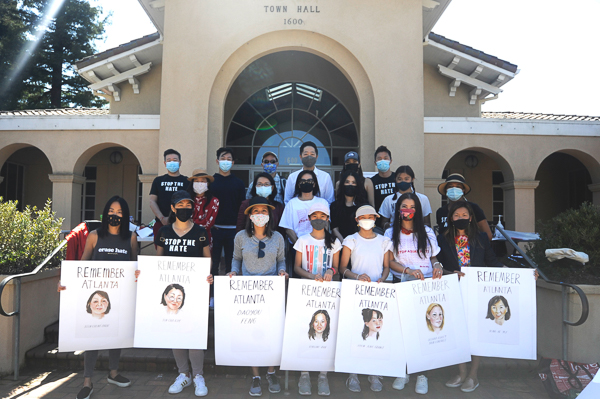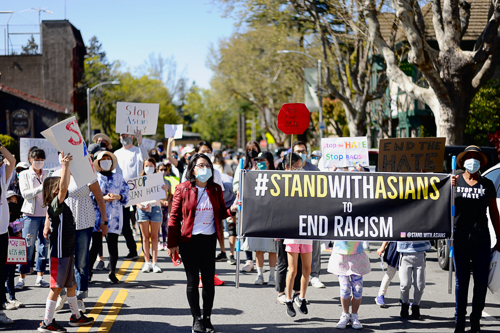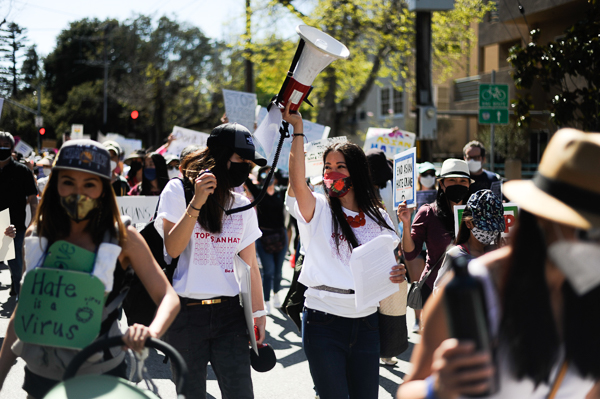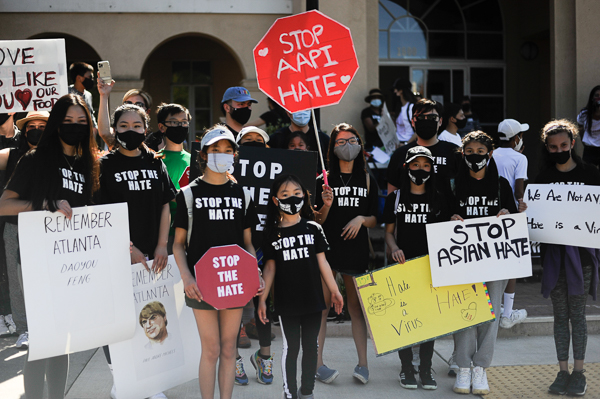By Natalie Louie, Senior Director of Product Marketing Strategy
Goodbye, work-life balance. Hello, work-life integration. Or as Jeff Bezos would say: Hello, work-life harmony.
Wait, what is the difference?
Work-life balance means work and life coexist separately with trade-offs. Work-life integration is bringing work-life closer into one harmonious relationship.
My introduction to work-life integration was when the 2020 pandemic hit, and I was working from home with three kids under 3 years old. My coworkers got a front row Zoom into my family life — my toddler on my lap, my twins on audio fighting from another room or my husband in the background, since my home office was in our bedroom. I blocked times in my calendar labeled ‘feeding kids’ and redefined ‘end-of-day’ with my team to mean midnight, not 5pm, as my quiet time to do work is after my kids are asleep. My team was very supportive to ensure I had the resources and structure I needed to work-hard and mom-hard.
My second brush with work-life integration was after the Atlanta shootings in March 2021. Our CEO, Tien Tzuo, sent a company wide email condemning any and all acts of racism, prejudice and bigotry and wanted to hear from us and offered a safe place to process and grieve. I started thinking “wait, I can think and talk about this at work?” The last person I expected to initiate, what I thought was potentially a taboo work topic, is the CEO of the company I work for. And I’m so thankful he did.

You see, I have always been a proud American – I was born and raised in California. My dad was born here, served our country in the Vietnam war and raised our family as patriots. We speak English at home and I learned a second language in grade school when I chose French. I believe in American freedom, opportunity and democracy — and I love this country that I was born in.
But, for some who look at me, they may assume another story. You see, I am of Asian descent. And to many, I am a hyphenated American. It wasn’t until I began my first full-time job in New York that I came to a painful realization that being both Asian, and a woman, in the workplace didn’t always invite equal treatment. I worked hard to overcome both of these biases working my way up the finance world in the concrete jungle of NYC. If the #metoo movement had trended earlier, I would’ve left the world of finance much sooner.

I eventually left behind my finance days and transitioned into tech because I saw technology not only changing the world we live in, but the world we work in — by embracing a modern work culture. But, I had also learned that working with great leadership is also key, because the culture of a company starts from the top. When I made the switch to the tech industry, I was interviewing the company just as much as they were interviewing me and I’ve luckily worked with some of the best leaders in Silicon Valley at Responsys, Oracle, Hired and now Zuora.
So, Tien’s email reaffirmed I had made the right career decision. I think he’s an exemplary leader who consistently addresses all current events impacting any ZEO. Since I identify as an Asian American female, the Atlanta shootings were heartbreaking and initially resulted in unexplained tears in some meetings, because I felt like the workplace was not a place to express my personal concerns. But, after I was given a safe place for work-life integration, it opened the doors to processing thoughts and emotions that I couldn’t articulate. I didn’t grow up talking about these issues because my family had always accepted that experiencing bigotry would be a part of life, that we already had so much to be thankful for and shouldn’t be complaining.

Because I felt so supported at work, a chain reaction occurred and I went from thanking Tien for his email — to joining listening sessions with our Chief Diversity Officer, Valerie Jackson, who wanted to hear all of my thoughts, ideas and plans — to my manager Lubor Ptacek telling me to take the time I needed to process things. It was new territory for me to openly talk about my personal fears and concerns — and not worry about being judged at work for it.
This open dialogue at work gave me the confidence to channel negative thoughts into positive action and, together with four other local AAPI mothers we planned a peaceful rally against racism, in just four days, alongside 1,000 people in our community. Families came with their parents and kids. We had speakers from our local community, celebrity AAPI’s and children speak up. The goal was to break the cycle of silence, that I was used to, and start having conversations to show our peers and children that everyone has a voice. Our message was clear: we belong here, and we’re standing up to encourage less hate and more love.

Our peaceful rally was covered by KQED, ABC7 News, NPR radio, KQED live-hit, and CBS @ kpixtv. Tien even sent a follow up email to our company about the action I took. I’m now helping Leighton Santos, a fellow ZEO, who is leading the creation of our first AAPI ERG group here at Zuora called ZAAPI. Leighton and I helped organize a Be Seen, Be Heard virtual event collaborating with Asian American ERG leaders from 50+ global companies, so that we can keep standing up for change. And, I was encouraged to share my story on our public Zuora blog.
I don’t know what’s next, but I can’t wait to be a part of it.
This is what work-life integration looks like. I no longer have my work persona by day and home persona by night. I’ve brought my work-life closer together. And, I can comfortably say goodbye, work-life balance — because I found something better. Hello, work-life integration.